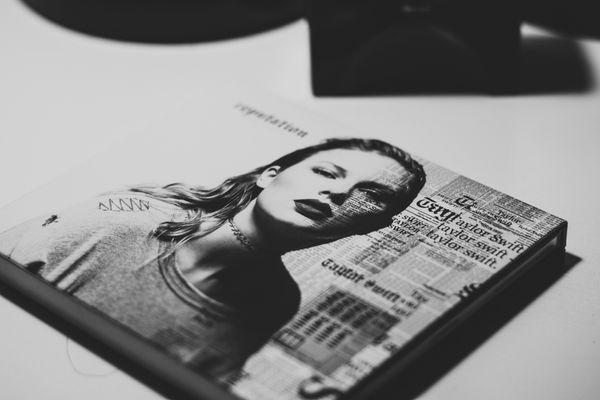The smooth rhythm of the jazz rumbles in the room and intoxicates the dancers. The drink and the dance devour the partygoers. Women’s short dresses are layered in fringe, responding to their every move. The champagne is so easily consumed. The alcohol oozes into your blood, relaxing every muscle. The beat of the jazz slowly but surely influences your smooth movements. The party thrives. The temptation to drink, to dance, to love, and to lust overwhelms. And it’s so easy to give in.
Set in the Roaring 20s, "The Great Gatsby"by F. Scott Fitzgerald was set in a time at which people relished in their youth, their frivolity, and their appearance. In the midst of the party, Jay Gatsby was not focused on the champagne, the jazz, or the lust of it all. Instead, his eyes were on Daisy Buchanan.
There lies the question: was Gatsby truly great? He was consumed by the idea of growing old with Daisy, a woman who valued financial security more than anything, or anyone, else. He was investing his time, his money, and his emotions in someone who would inevitably hurt him.
After reading this novel during junior year English class, my peers commented on how Gatsby is pathetic. They commented that there was an irony in the title. By describing Gatsby as “great,” it implied Gatsby is at the ranks of revolutionary characters in literature including the selfless Sydney Carton from "A Tale of Two Cities," or the dynamic Mr. Darcy from "Pride and Prejudice." However, they argued that in reality, Gatsby is far from it.
However, Gatsby has the capacity to love. He is brave enough to put his heart on the line. In a world that is consumed by artificial lust, he believed in something that was bigger than all of us.
Similar to the party scene during the 1920s, college campuses are riddled with this same sense of superficiality. Hook-up culture has a dominating presence at frat parties and beyond. In the midst of the beer pong, the awkward dancing, and the booming R. Kelly song “Ignition,” college students are not looking for a life partner, but a one-night companion. Therefore, after reading F. Scott Fitzgerald’s novel, learning about a character like Gatsby that rejects this artificial love is something that should not go unnoticed.
Loving someone is a huge risk. You are putting your heart in someone’s hands. You trust someone with everything you have and everything you are. Sometimes, engaging in the hook-up culture is a defense mechanism to protect yourself.
If you don’t trust anyone, you won’t get hurt. And it’s easy to believe that there is not a love story out there for you that will make you feel safe.
However, despite the superficiality of his world, Gatsby believed in something authentic. He believed in something bigger than his world, bigger than our world. Whether 1921 or 2016, our world is tainted by lust, superficiality, and shallowness. Therefore, having the capacity to believe, to hope, to feel, and to love are the most courageous acts anyone can do.











































